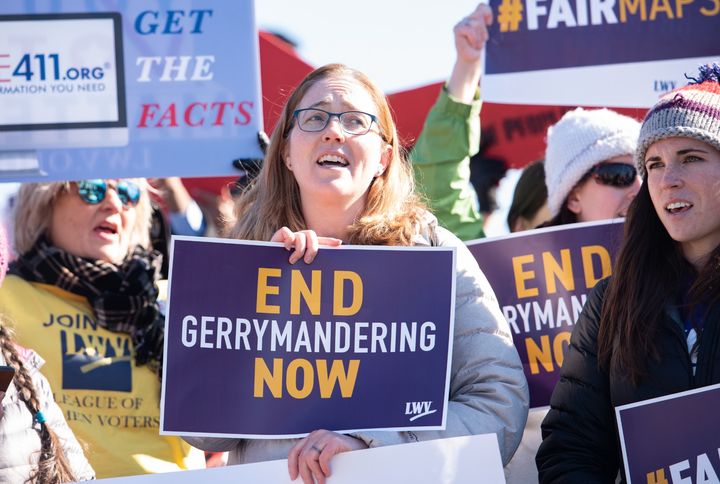The Wisconsin Assembly became notorious for its gerrymandered districts after the 2018 election, when 63 of 99 seats went to Republicans despite the party winning only 46% of votes. The district maps drawn by Republicans in 2011 were so unrepresentative of the majority of voters that a study last year by Harvard’s Electoral Integrity Project gave them a score of just 3, out of a possible 100 for perceived integrity—lower than any other state. (In fact, their Dec. 2016 report rated the integrity of North Carolina’s voting district boundaries as just 7 out of 100, which was then “the worst entity in the world ever analyzed by the Electoral Integrity Project.”)
The governing crisis in Wisconsin was underscored in April of this year, when photos of long in-person voting lines during the coronavirus crisis were broadcast nationwide. State Republicans had refused to entertain Democratic Governor Tony Evers’ proposal to mail more absentee ballots and postpone the primary in order to prepare for greater public safety amid the COVID pandemic.
While Wisconsin politics is the poster child for polarization between Democrats and Republicans, the gerrymandering of the state legislature has inspired an unprecedented grassroots campaign to pass local measures endorsing independent redistricting statewide. In extremely polarized Wisconsin, a legislative future for fair district maps is overcoming the stark partisan divide. Partisan gerrymandering increases partisanship by returning the same candidates to office through primaries in which they chiefly mobilize their base. The result can be the entrenchment of one party as a legislative majority despite receiving a minority of votes.
The Wisconsin Fair Maps Coalition is composed of over 20 nonpartisan, grassroots state groups, like the League of Women Voters of Wisconsin and Common Cause Wisconsin, and is working to build public awareness of the effects of partisan gerrymandering. Founded in 2017, the coalition supports legislation to transfer responsibility for the redistricting process to a nonpartisan commission after this year’s census and beyond. Along with public education, its key strategy has been getting Wisconsin county election boards to vote on resolutions, as well as through voter referendums.
The Fair Maps Coalition has ushered through resolutions in 54 of Wisconsin’s 72 counties that “[support] creation of a nonpartisan procedure for the preparation of legislative and congressional redistricting plans,” according to coalition member Wisconsin Democracy Campaign (WDC), a nonprofit. These counties together represent over 82% of the state’s population, WDC says.
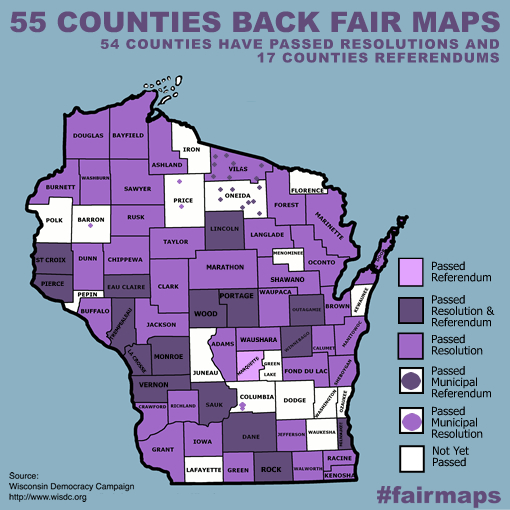
Three-quarters of the resolutions were passed in Republican-controlled counties, according to WDC, and 17 counties have passed non-binding referendums endorsed by voters at an average of 74.6% support, bringing the total to 55 counties signed-on. Voters in the state’s two most populous counties, Milwaukee County and Dane County (where the city of Madison is located), with over a quarter of the state’s population combined, signed on—Dane County voters passed a referendum in 2014 and Milwaukee County voters approved one this past April. A poll released in January 2019 by Marquette University Law School found that 72% of respondents favored nonpartisan redistricting, including 83% of Democrats, 76% of independents, and 63% of Republicans.
Matt Rothschild, the executive director of WDC, says that the 17 referendums in favor of ensuring that voters choose their elected officials—rather than the other way around—all passed overwhelmingly. “In polarized Wisconsin,” he said, “what other issue gets 75% support?”
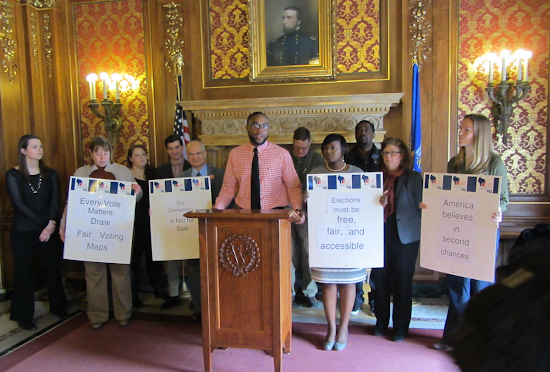
On Nov. 3, 11 more counties will vote on Fair Maps Coalition referendums, including Kenosha County, the state’s eighth-largest by population, where protests swelled in the wake of the shooting of Jacob Blake by police officer Rusten Sheskey. Voters in the municipality of Racine, the state’s fifth-largest city, will also have a chance to call on the Wisconsin legislature to adopt “the Iowa model,” where career civil servants draw district maps, not the leaders of the majority political party.
Two bills that would establish this model of independent redistricting were introduced by Democrats in June 2019 in the Wisconsin legislature, Senate Bill 288 and Assembly Bill 303, though both failed to pass under Republican control. “Reform bills have been introduced every session for the past ten years,” Rothschild says, “and Rep. Todd Novak had been the only Republican co-sponsor for fair districting. This time, the reform bills got five Republican cosponsors, four more than ever before. I have it on good info that Republican Assembly Speaker Robin Vos did not want that many Republican cosponsors.”
The latest Republican cosponsor, Rep. Jeff Mursau, posed the independent redistricting procedure to his constituents over social media as a “Question of the Week” last fall, and 78% responded in favor with only 6% opposed. “After reading the comments and responses from last week’s question and looking over the bill, I’ve decided to add myself as a co-sponsor,” Mursau said.
Debra Cronmiller, executive director of the League of Women Voters of Wisconsin, says that her group’s members have been ramping up educational efforts in their communities. “A few years ago, few people would have been familiar with the concept of gerrymandering,” Cronmiller told Sludge. “Today, hardly a person in Wisconsin wouldn’t be familiar. There’s an awakening consciousness of how destructive it is to representative government to have gerrymandered maps, when your elected official doesn’t have to listen to you, where they don’t have to be collegial to their elected colleagues. In Wisconsin, it’s become a highly politicized, uncivil governing system.”
To reach Wisconsinites who aren’t on social media, Cronmiller says, her group has made its first foray into outdoor advertising with a billboard in Brown County, where the city of Green Bay is located, promoting awareness of the fair maps initiative.
After Wisconsin’s “pandemic election” in early April, Michael Li, senior counsel for the Brennan Center’s Democracy Program, wrote that gerrymandering was not the sole reason that state Republicans controlled enough seats to hold a hazardous and under-prepared election, noting that the state has faced years of right-wing challenges to voting access. But lawmakers’ decision to force long in-person lines at polling places would have had greater political risk, he argues, than it does under the gerrymandered status quo.
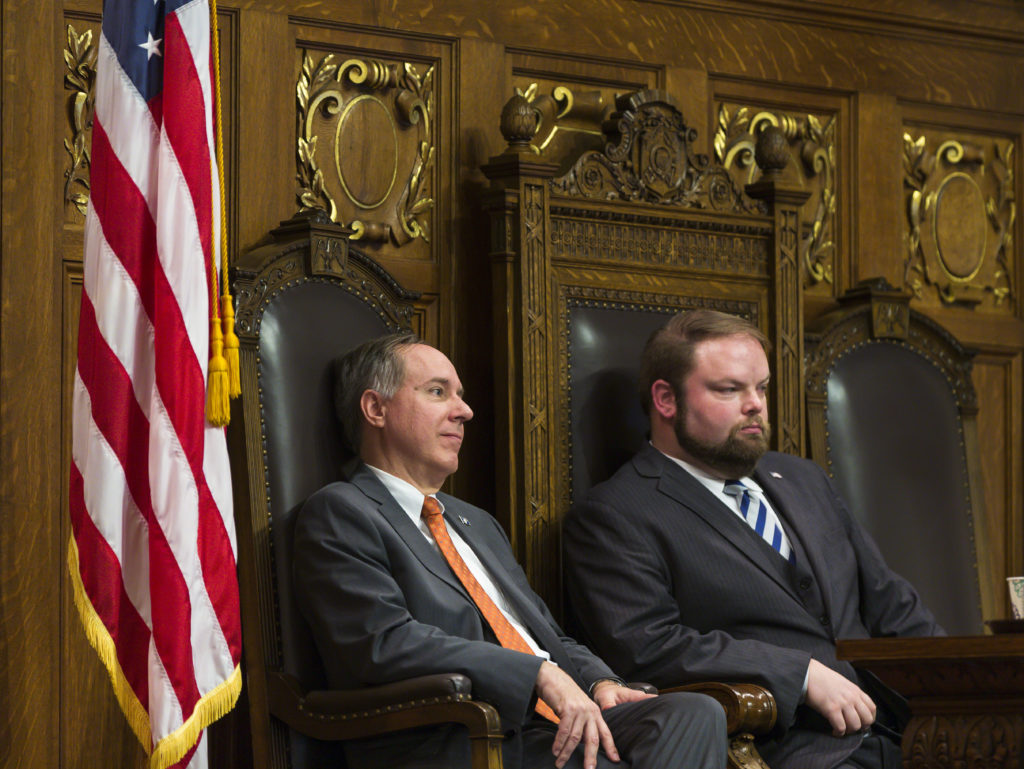
Rick Esenberg, the founder and president of the Wisconsin Institute for Law and Liberty, a conservative and libertarian law firm based in Milwaukee, told the Wisconsin Center for Investigative Journalism before the 2018 election that he thinks the impact of voter disenfranchisement from partisan-controlled districting is overstated.
Two weeks ago, former state Sen. Dan Kapanke, who is currently a Republican candidate for a western Wisconsin Senate seat, admitted on a talk radio show that the state’s district maps are gerrymandered. “The Democrats right now are the minority, and they’re complaining about these districts and, some of them, they have some merit, some of their complaints,” said Kapanke. “There’s no question.”
In 2019, Evers proposed establishing a nonpartisan commission in his state budget, but Republican legislative leaders blocked the move to have the state Legislative Reference Bureau draw district maps.
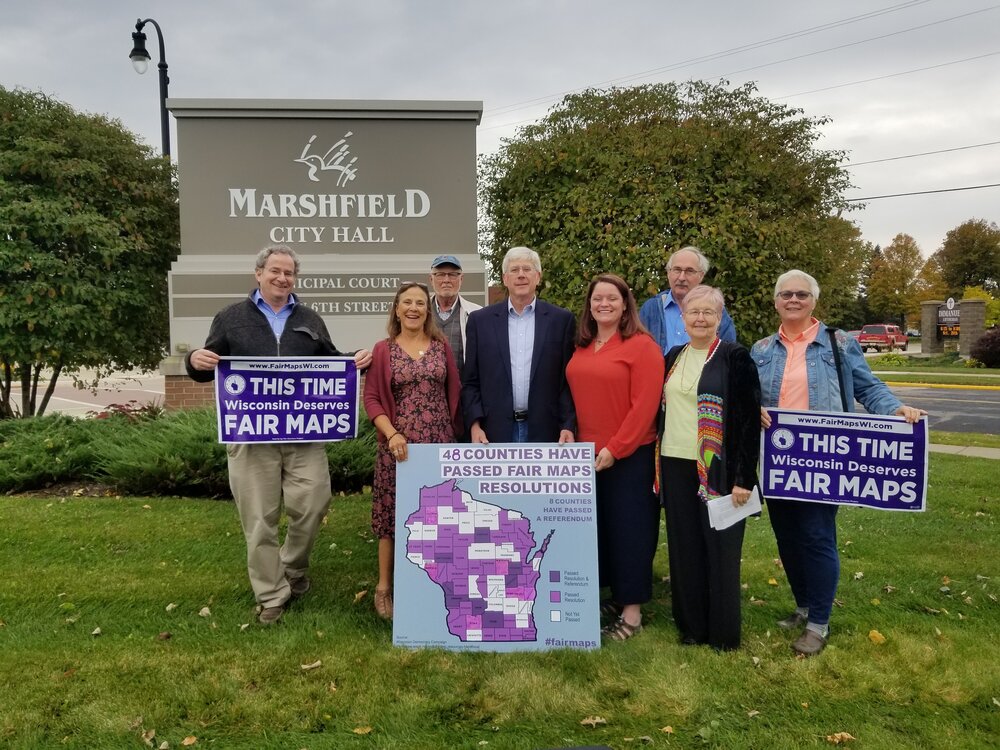
Democratic Gov. Evers recently established The People’s Maps Commission, a task force composed of “doctors, librarians, and teachers, not politicians, lobbyists, or elected officials,” Evers said. The commission members, who were selected by a panel of nonpartisan retired judges, are tasked with taking testimony from Wisconsinites statewide and then drawing maps for the state legislature to consider in next year’s redistricting process.
But the legislature will be under no obligation to use the commission’s recommendations, which underscores the coalition’s call for legislative reform. Cronmiller says, “In Wisconsin, without a statewide binding referendum, changing the law is really the recourse we have, so that’s why it’s so important for the legislature to take up these bills, to actually hold public hearings, to be attentive to the constituents. Passing these bills and not ignoring them in another session is really the only way Wisconsin can change its pattern.”
On Oct. 1, the League of Women Voters of Wisconsin is hosting an online forum with two retired state senators, a Democrat and a Republican, who Cronmiller says will be discussing the importance of fair maps as a good-government issue.
